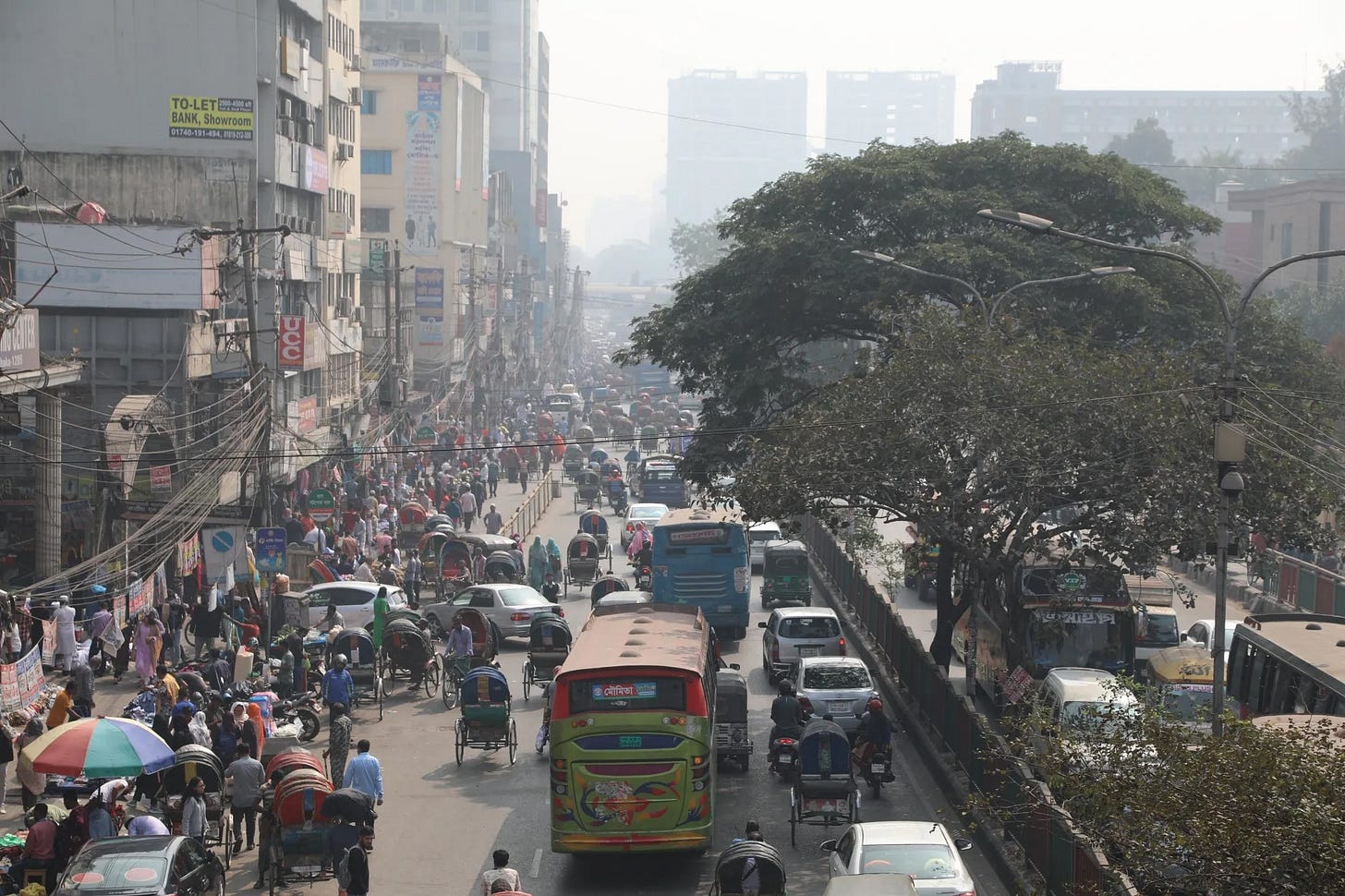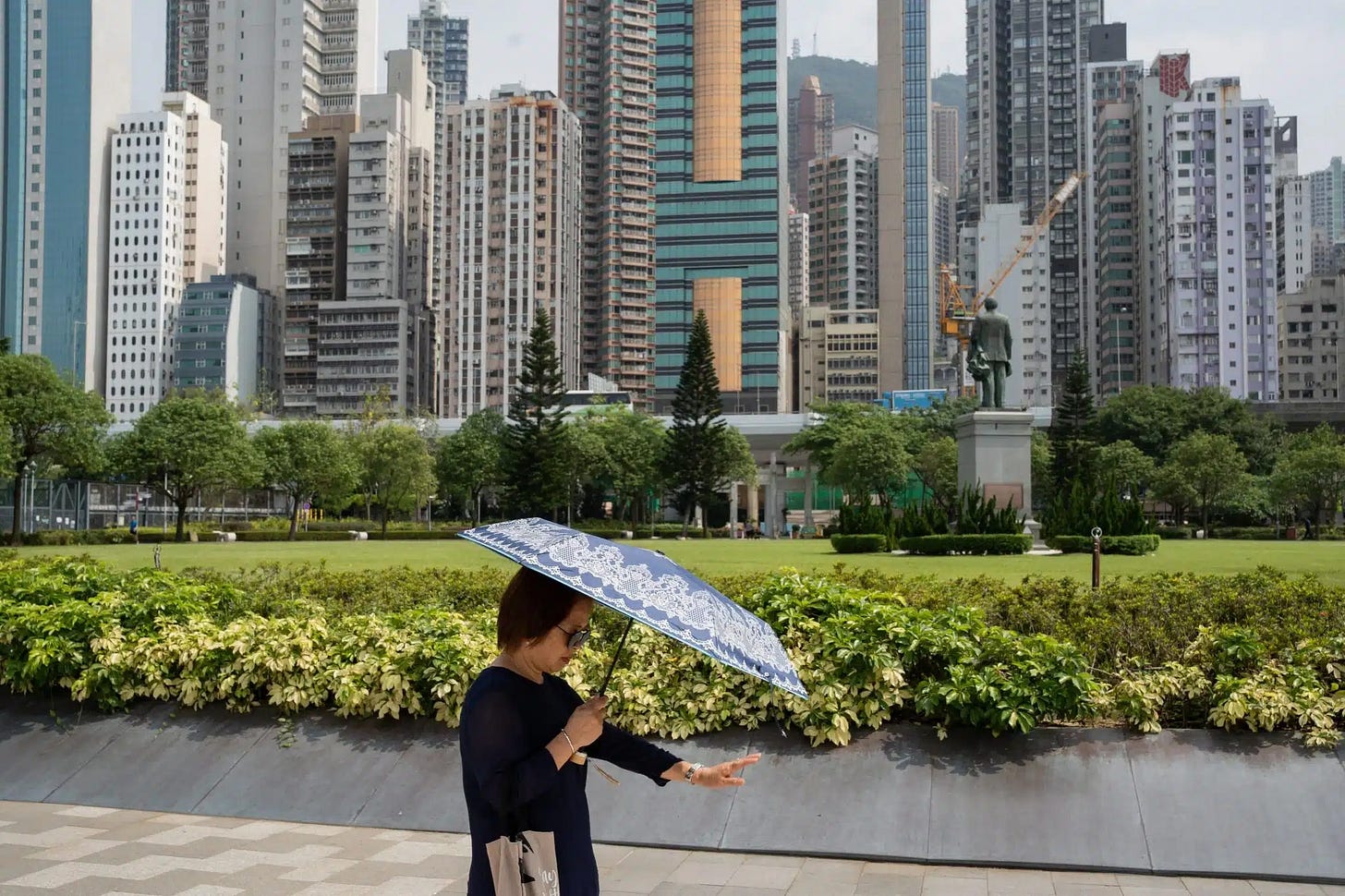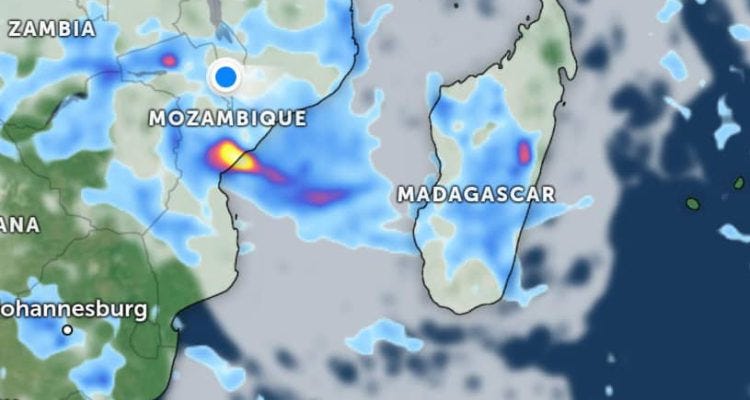Hot Planet Update: EPA Deregulates, Farmer Sues RWE, Air Quality Standard Failures, World Cities Flip from Wet to Dry, Cyclone Jude, & More
A roundup of what happened, why it matters, and key context for climate change news during the week of March 9-15.

Welcome to “Hot Planet Update,” a series on Reality Studies that recaps the biggest news in climate from the last week. Using a “smart brevity” format, Last Week in Climate recaps are designed to keep you up-to-date on the latest news and provide key context.
The first half of each LWiC is available for free subscribers, and the full post is available to paid subscribers. Subscribe now so you never miss an installment!
1. EPA claws back $20 billion in climate grants (US)
👉 The EPA under President Trump terminated a $20 billion Biden-era climate grant program, claiming it was plagued by “fraud, waste and abuse.”
A federal judge demanded evidence for those claims, noting officials provided no specific proof of malfeasance. The judge ordered the administration to detail any justification after an advocacy group sued to block the move.
Critics say the clawback illegally seizes funds Congress allocated for clean energy projects in disadvantaged communities.
The EPA argued the grants were already rescinded, but the court challenge is ongoing.
MUD\WTR: Right now, get 30% off on starter packs using this link.
There’s four different adaptogen blends to choose from, but my current favorite is :rest, which helps me ramp down from long days and feel ready for sleep.
2. Only 7 countries meet WHO clean-air standards
👉 Only seven countries: Australia, the Bahamas, Barbados, Grenada, Estonia, Iceland, and New Zealand met the WHO’s safe PM2.5 air quality standard in 2024, according to the latest global air pollution report by IQAir.
The vast majority of nations fail to ensure healthy air. Chad and Bangladesh had the highest pollution, with average levels 15x above WHO’s guidelines. Pakistan, Democratic Republic of the Congo, and India rounded out the worst five for dirty air.
Only 17% of global cities achieved safe air, though that’s up from 9% the year before.
Experts warn the battle against smog may get harder—the U.S. shut down its overseas air-monitoring program, which many developing countries relied on for pollution data.
According to Christa Hasenkopf, director of the Clean Air Program at the University of Chicago's Energy Policy Institute (EPIC), at least 34 countries rely on air quality sensors mounted on U.S. embassy and consulate buildings to track smog levels as part of the now-shuttered program.
Rodolfo Dirzo: Understanding Mass Extinctions, The Gift of Biodiversity, Plant-Animal Relationships, and 'Defaunation' | #34
Welcome to the Urgent Futures podcast, the show that finds {signals} in the noise. Each week, I sit down with leading thinkers whose research, concepts, and questions clarify the chaos, from culture to the cosmos.
3. Farmers’ climate lawsuit tests corporate liability
👉 A Peruvian farmer, Saúl Luciano Lliuya, is suing German energy giant RWE in a landmark climate lawsuit. He argues RWE’s emissions contributed to glacier melt above his town, Huaraz, and is demanding €17k (RWE’s calculated 0.5% share of the cost) for new flood defenses.
The case will be heard in a German court and could set a global precedent. It seeks to hold a corporation partly responsible for climate change impacts across the world, effectively asking: can big polluters be liable for local damages?
Lliuya, a mountain guide, faces a growing flood risk as a glacial lake swells above Huaraz. He’s received support from environmental groups and hopes a win would compel polluters to pay for climate adaptation in vulnerable communities.
RWE rejects the claim, but the outcome is being closely watched internationally.
4. Wet cities drying out, dry cities deluged (study)
👉 A climate study of the 100 most populated cities finds 44% are getting drier and 52% wetter as weather patterns shift. Many urban areas have seen a “climate hazard flip”—switching from their historical norm to the opposite extreme.
Hong Kong (China), Cairo (Egypt), Madrid (Spain), Riyadh (Saudi Arabia), and Jeddah (Saudi Arabia) were once water-rich cities now rapidly growing drier, topping the list of places facing new drought risks. Decades of data show these cities’ rainfall plummeting as the climate warms.
Conversely, cities like Colombo (Sri Lanka), Mumbai (India) and Kuala Lumpur (Malaysia) have flipped from dry to ultra-wet. They historically struggled with drought but are now seeing intensified downpours and flooding. The report, commissioned by WaterAid, highlights how climate change is throwing urban water cycles out of balance worldwide.
5. Cyclone Jude wreaks havoc in southern Africa (disaster)
👉 Tropical Cyclone Jude struck Mozambique’s coast, unleashing extreme rain (over 250 mm or 9.8 inches in 24 hours) and floods. It killed at least 16 people in northern Mozambique and displaced 9.5k+ residents in Nampula and Niassa provinces.
Homes, crops and infrastructure were damaged by the deluge. At least two more people are considered missing, and nearly 60 have been injured.
The storm also swept inland into Malawi, where at least 3 more deaths have been reported and 20k people have been left homeless in the south due to heavy flooding. Rivers overflowed after days of torrential rain.
Washed-out roads and bridges hampered relief efforts in both countries. Jude is the second destructive cyclone to hit the region in months (a cyclone in late 2024 killed dozens), highlighting southern Africa’s vulnerability to climate-fueled tropical storms.
Mission Farms CBD: My favorite CBD, full stop. They farm the hemp organically on a small Oregon farm, tend every plant by hand, and test for purity four times: the soil, the hemp, the hemp-extract, and the final products.
Go to this link and sign up for emails to get 25% off + free shipping on your first order.









